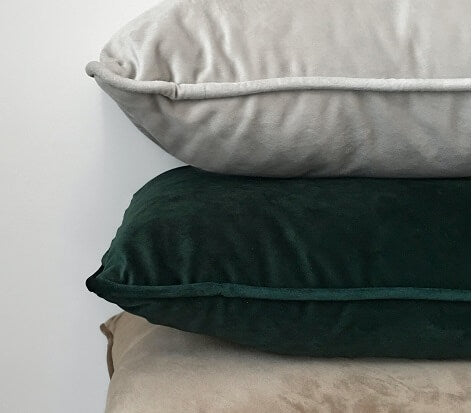Understanding Sleep Moaning During Illness
Have you ever woken up in the middle of the night, realizing you were moaning in your sleep while feeling under the weather? This can be confusing and a little worrying. To understand why this happens, it helps to look at the physical and mental changes our bodies go through during illness that affect sleep quality. Here, we shed light on the reasons behind moaning or groaning during sleep when you're sick and highlight this interesting aspect of sleep medicine.
Why Do People Moan in Their Sleep When They Are Sick?

When we’re sick, our bodies experience a lot of changes that can throw off our usual sleep patterns. Physical discomforts like body aches, sore throat, congestion, or fever can cause us to moan or groan unconsciously during sleep. These sounds often happen as the body tries to ease discomfort or adjust to how it feels, which can also disturb sleep partners.
Increased mucus and congestion can block the airways, making breathing harder and sometimes causing moaning sounds as the body works to clear the blockage. Fever can add to restlessness and discomfort, leading to more vocalizations similar to catathrenia symptoms.
The mind also plays a part. Being sick often brings anxiety, stress, or feelings of helplessness, which can show up during sleep as moaning or other sounds. Sometimes, vivid or upsetting dreams related to illness might cause moaning or whimpering, similar to sleep talking.
Illness can also disrupt normal breathing. Respiratory infections or congestion can cause irregular breathing or breath holding, which might trigger moaning or groaning during sleep, especially as body temperature changes. These altered breathing patterns sometimes show up as sleep-related groaning, a symptom linked to conditions like catathrenia.
The immune response during sickness affects both the respiratory and central nervous systems, which can change how we sleep and cause unusual noises. The mix of physical pain, breathing changes, and mental stress creates a situation where moaning in sleep becomes more likely when we’re sick. This can be seen as a primary symptom.
In most cases, moaning during sleep while sick is just the body responding naturally to stress and discomfort. Usually, it’s harmless, but if it’s loud or persistent enough to interfere with your or your bed partner’s sleep, it might be worth getting checked out.
Physical Discomfort and Its Impact on Sleep
When illness causes physical discomfort, it often shows up during sleep. A sore throat, for example, can make swallowing or breathing painful, leading to unconscious moaning. Muscle aches, headaches, and tummy troubles can also make it hard to rest quietly, causing vocalizations.
These symptoms tend to improve as you get better, and the moaning usually fades. But if it continues after you’ve recovered or comes with other issues like daytime tiredness or mood changes, it’s a good idea to talk to a sleep specialist or healthcare provider.
The Role of Fever in Sleep Moaning
Fever raises your body temperature and often makes you feel restless and uncomfortable, which can interrupt sleep. This discomfort might cause moaning or other sounds as your body tries to cool down and find comfort. Usually, fever-related sleep moaning is temporary and fades as the fever goes away.
Taking fever reducers like acetaminophen or ibuprofen, staying hydrated, and resting well can help ease these sleep disruptions.
Psychological Factors Contributing to Sleep Moaning
Stress, anxiety, and discomfort from being sick can affect how you sleep. These feelings might lead to moaning or groaning as your brain processes both emotional and physical stress. Some medications for illness might also change brain activity during sleep, potentially causing vocal sounds, which is something to consider when looking at ways to treat catathrenia.
Relaxation exercises, stress management, and chatting with a healthcare provider can help ease these mental factors. The Sleep Foundation also suggests that sleeping with a weighted blanket can bring comfort and reduce restlessness and moaning during sleep. Weighted blankets apply gentle pressure that calms the nervous system, improving sleep quality and easing anxiety—helpful when you’re feeling unwell.
Sleep-Related Breathing Disorders and Sleep Moaning
Certain sleep-related breathing disorders can cause moaning or groaning at night. For example, obstructive sleep apnea (OSA) disrupts breathing and can lead to noisy sleep. But sometimes, the moaning is caused by a different condition called catathrenia. If your moaning is frequent or loud enough to bother others, seeing a healthcare professional for proper evaluation is a smart move.
Sleep-related breathing disorders involve abnormalities in the way air flows through the respiratory system during sleep. These conditions can cause disrupted sleep, leading to daytime fatigue, irritability, and other health issues. While snoring is a common symptom in many breathing disorders, the sounds produced can vary significantly depending on the underlying condition.
Obstructive sleep apnea is characterized by repeated episodes of partial or complete blockage of the upper airway during sleep, resulting in interrupted breathing and often loud snoring sounds during inhalation. In contrast, catathrenia, also known as nocturnal groaning, produces moaning or groaning sounds primarily during exhalation. This distinction is important for proper diagnosis and treatment.
Because symptoms of catathrenia can overlap with other sleep disorders, such as sleep apnea or sleep talking, a thorough clinical evaluation is necessary. A sleep specialist may recommend a sleep study conducted at a sleep center, which records breathing patterns, brain activity, and sounds during sleep to differentiate between these conditions.
Early diagnosis and effective treatment of sleep-related breathing disorders can significantly improve sleep quality and overall health. Treatments may include continuous positive airway pressure (CPAP) therapy, oral appliances, or surgical interventions, depending on the specific disorder and its severity.
If you or your bed partner notice frequent nighttime groaning or other unusual sleep sounds, consulting a healthcare professional or throat specialist can help determine the cause and guide appropriate management. Taking steps such as maintaining good sleep hygiene, using earplugs for bed partners, or sleeping in a separate room can also help reduce the impact of these noises on sleep quality and relationships.
What is Catathrenia?
Catathrenia, also known as nocturnal groaning, is a rare sleep disorder where people make prolonged moaning or groaning sounds while exhaling during sleep. It’s a type of parasomnia and usually happens during REM sleep, though it can also occur during non-REM stages.
This condition often begins in childhood or early adulthood and and affects young men more than women. Although catathrenia is a rare disorder, affecting between 0.17% and 0.4% of people with sleep problems, it is considered a chronic sleep-related breathing disorder that's unlikely to go away on its own.
Catathrenia Sound and Characteristics
The main sign of catathrenia is a low, steady groaning sound during exhalation that stops when you inhale. These sounds can last from a few seconds up to almost a minute and often come in random clusters during the night. Unlike snoring, which happens when air vibrates soft throat tissues during inhalation, catathrenia sounds come from the vocal cords during exhalation.
Most people with catathrenia don’t know they make these sounds; usually, it’s a bed partner or family member who notices. The disorder can affect how well both the person and their bed partner sleep, sometimes causing tiredness and irritability during the day.
Common Catathrenia Symptoms
- Long moaning or groaning sounds during sleep, mostly while exhaling
- Sounds lasting from 2 seconds up to nearly 50 seconds or more
- Mostly happening during REM sleep but can occur in non-REM sleep too
- Random clusters of groaning episodes throughout the night
- The sleeper usually isn’t aware of the sounds
- Sleep disruption that can lead to daytime tiredness, irritability, or trouble concentrating
- No drops in oxygen levels, which helps distinguish it from obstructive sleep apnea
- Groaning can be loud enough to disturb others nearby
- Breathing patterns may include breath holding or slow breathing during episodes
- No memory of the groaning or sleep disturbances after waking
Causes and Contributing Factors of Catathrenia
The exact cause of catathrenia is still a mystery. It might involve problems with the brain’s breathing control center, small upper airways, small jaw size, or limited airflow. Genetics and family history could also play a part.
Because catathrenia can look like other sleep disorders, such as obstructive sleep apnea, it’s important to get a proper sleep study to tell them apart.
Diagnosing Catathrenia
A sleep specialist usually diagnoses catathrenia through a physical exam and an overnight polysomnography (sleep study). This test records brain activity, breathing, and the groaning sounds, helping to distinguish catathrenia from other disorders.
Sometimes, audio recordings of the groaning can help doctors make the diagnosis.
Treatment Options for Catathrenia
While there’s no one-size-fits-all cure, several treatments can help reduce symptoms:
-
Continuous Positive Airway Pressure (CPAP) Therapy: A CPAP machine keeps the airway open by delivering pressurized air through a mask at night, which can reduce groaning and improve sleep quality.
-
Oral Appliances: These devices, worn during sleep, help keep the upper airway open for some people.
-
Surgery: In rare cases, surgery to remove enlarged tonsils or fix vocal cord issues might be recommended.
- Good Sleep Hygiene: Keeping a regular sleep schedule, avoiding caffeine or stimulants before bed, and creating a relaxing sleep environment support better sleep overall.
If you share a bed with someone who groans at night, earplugs or white noise machines can help reduce disturbances.
When to Seek Medical Attention
If your moaning during sleep is frequent, loud, or affecting your or your bed partner’s sleep, it’s important to get evaluated by a healthcare professional or sleep specialist. Proper diagnosis and treatment can improve sleep quality and ease any stress or embarrassment.
Conclusion
Moaning in sleep while sick is usually just your body’s natural way of reacting to discomfort, fever, congestion, and stress. It’s generally harmless, but if it happens often or severely, it might point to a sleep disorder like catathrenia nocturnal groaning. Knowing what causes it and getting the right evaluation can help you manage symptoms and sleep better.
For more information on sleep disorders and treatments, trusted sources like the Sleep Foundation and the American Academy of Sleep Medicine offer helpful guidance.







